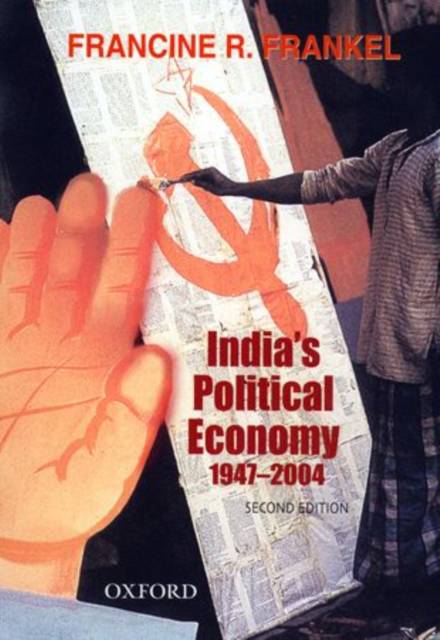
- Afhalen na 1 uur in een winkel met voorraad
- Gratis thuislevering in België vanaf € 30
- Ruim aanbod met 7 miljoen producten
- Afhalen na 1 uur in een winkel met voorraad
- Gratis thuislevering in België vanaf € 30
- Ruim aanbod met 7 miljoen producten
Zoeken
€ 22,45
+ 44 punten
Omschrijving
This book addresses the fundamental paradox of India's political economy: how can the goals of economic growth and reduction of economic and social disparities be reconciled without unleashing the disruptive violence of a direct attack on the propertied castes and classes. The author illuminates the contradiction between the practice of accommodative politics and the commitment to social change that characterized India's development policies. Using data from interviews conducted over a 30-year period, Professor Frankel analyses the strategy of democratic social transformation adapted from Gandhi's two-pronged approach: class accommodation combined with an indirect attack on the social basis of exploitation. She examines the failures in implementation of basic social reform that led India during the post-Nehru period into an economic and political impasse. The author shows how these failures not only limited India's progress toward economic growth and social justice, but also disrupted the political consensus that had made a stable democracy possible. The new chapters engage critically with the economic liberalization programme that India initiated since 1991.
Specificaties
Betrokkenen
- Auteur(s):
- Uitgeverij:
Inhoud
- Aantal bladzijden:
- 840
- Taal:
- Engels
Eigenschappen
- Productcode (EAN):
- 9780195683790
- Verschijningsdatum:
- 1/03/2009
- Uitvoering:
- Paperback
- Formaat:
- Trade paperback (VS)
- Afmetingen:
- 160 mm x 241 mm
- Gewicht:
- 1156 g

Alleen bij Standaard Boekhandel
+ 44 punten op je klantenkaart van Standaard Boekhandel
Beoordelingen
We publiceren alleen reviews die voldoen aan de voorwaarden voor reviews. Bekijk onze voorwaarden voor reviews.











